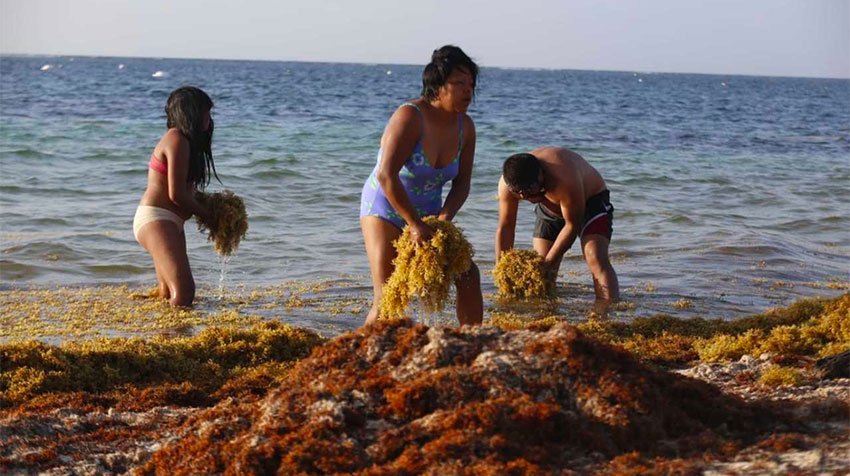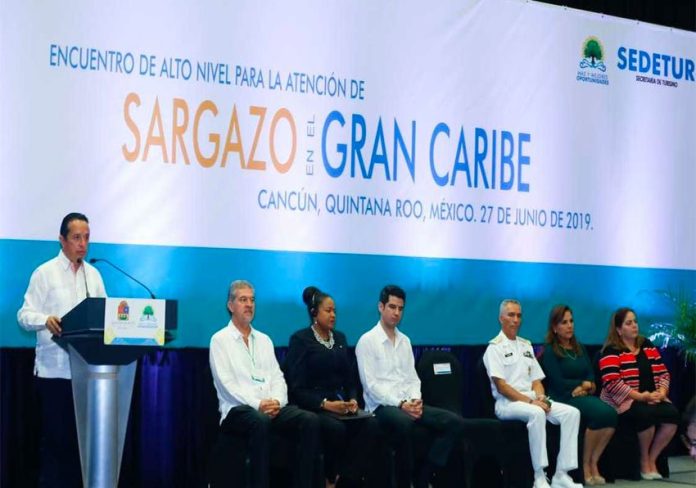Representatives of 13 countries gathered in Cancún this week to discuss a regional strategy to combat sargassum on Caribbean coasts.
Officials from Mexico, Honduras, Nicaragua, the Dominican Republic, Jamaica, Trinidad and Tobago, Haiti, Cuba, Panama, Guadeloupe (a French overseas region), Belize, Guyana and Guatemala attended the event during which they participated in roundtable discussions that also considered the effects of sargassum on tourism and the environment.
Quintana Roo Environment Secretary Alfredo Arellano Guillermo told the news agency Notimex that the aim of the summit was to generate a better understanding of the origin of the sargassum problem, to use that knowledge as the basis for the development of solutions and to identify ways to fund efforts to combat the seaweed’s arrival.
“It’s obvious that this meeting will not solve the problem but it can set the basis for regional coordination and collaboration between the affected countries,” he said.
Among the proposals presented were to provide extra support for research into the sargassum phenomenon and to develop a warning system for the weed similar to that in place for hurricanes.

June Marie Soome, general secretary of the Association of Caribbean States, proposed a revision of the Convention for the Protection and Development of the Marine Environment in the Wider Caribbean Region, a 1983 agreement commonly known as the Cartagena Convention.
“We have to revise it to make sure we have a protocol for invasive species, whether that be the lionfish, sargassum or anything else that is affecting our very diverse region. I believe it is a political decision and political strength is needed in order to be able to deal with this problem” she said.
Soome also said that countries affected by sargassum need to look at different ways to obtain external funding for anti-sargassum strategies given that many of them lack their own resources to stop or mitigate the invasion of the seaweed.
“Our countries are in general small countries with small economies. I represent a lot of small islands, I represent a lot of developing countries in Central America so we need financing to fight against sargassum . . .”
Quintana Roo Governor Carlos Joaquín González stressed that long-term solutions to the problem are needed to stop the negative effects of the seasonal phenomenon on tourism, which is the backbone of most Caribbean countries.
His administration and the federal government expressed conflicting views about the seriousness of the sargassum problem this week.
President López Obrador said Monday that the arrival of sargassum on Caribbean coast beaches is not a serious issue but the Quintana Roo government quickly countered that it is in fact “extremely serious.”
For the federal government, it wasn’t sufficiently serious to send a representative to the Cancún meeting. The only Mexicans present were from Quintana Roo.
